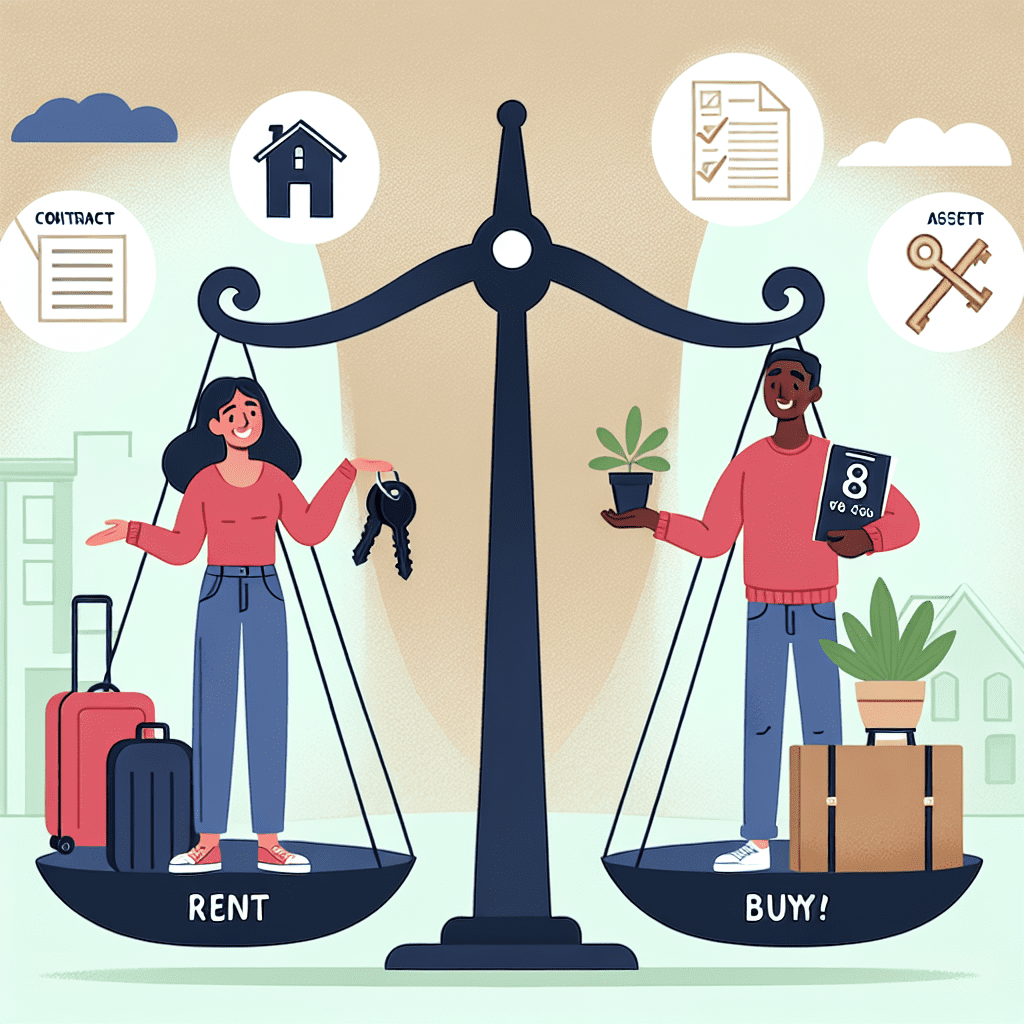Deciding whether you are planning on renting vs buying a home is a major financial decision. Both options come with their pros and cons in a property market that has huge price fluctuations depending on the city. I will try to help you make better more informed decisions by comparing both.
This guide will explores the main differences between renting and buying, helping you decide what works best for your situation.
Renting: Flexibility vs Buying: Stability

Advantages of Renting:
One of the biggest advantages of renting is the flexibility of location choice. If you’re undecided on where you want to settle, or perhaps you just need to relocate for a brand new work opportunity in a new city, renting might just be the best option.
Financially, renting is often much more accessible. Getting everything sorted with a landlord will be a whole lot quicker than working with an estate agent to set your new housing. For rent, you’ll need a deposit (usually around five weeks’ rent), 1 months rent in advance, and possibly some agency fees. You won’t have the complication of sorting out a mortgage approval, larger deposits, considering more longer term commitments, or the legal costs.
Another benefit is that maintenance and repairs are usually the landlord’s responsibility. Whether it’s a boiler breakdown or a leaking roof, renters don’t have to cover the costs, something that can save you a lot of money over time.
Another possibility is you may potentially be able to sublet the home with permission from the landlord which could potentially open a new possibility for making money.
Advantage of Buying:
However, renting also has its downsides. You’re paying for a property you’ll never own, meaning there’s no return on your investment. Rental prices can (and will) increase, especially in high-demand areas, and there’s always the risk of a landlord deciding to sell or not renewing your contract. There are also restrictions on making changes to the property, from decorating to keeping pets. You will need permission if you decide on making any changes to your home.
Buying, on the other hand, offers long-term stability. Owning a home means that you don’t have to worry about a landlord selling off your home or increasing rent unexpectedly as the area becomes more popular. Once your mortgage is paid off, your housing costs drop significantly, and you have the security of a property that belongs to you.
Further, a benefit of owning a home is you have the opportunity of property appreciation. Many UK homeowners have seen significant increases in their property’s worth, making them a strong long-term investment allowing you to gain on your initial investment.
However, homeownership also comes with additional risks like financial responsibilities, mortgage repayments, maintenance costs, property taxes, and the risk of fluctuating house prices.
Helpful Resources:
- Government Renting Advice – Know your rights as a tenant.
- Mortgage Advice from MoneyHelper – Understand different mortgage options.
Renting vs Buying: Lower Upfront Payments vs Building Long Term Equity

Renting:
Renting offers demands a much smaller initial payment. Renters bypass the need to accumulate a deposit (as required for a mortgage) representing 5-20% of a property’s value by only paying a security deposit and the first month’s rent. Renting is a great alternative for individuals who wish to maintain their savings for prioritise other short term investments.
The act of renting provides a means to reside in desirable location of your own choosing whereas purchasing property remains financially out of reach in certain areas. Acquiring property in central London requires substantial initial deposits and mortgage clearances.
Buying:
In the context of house purchasing, every mortgage payment contributes to an accumulation of property ownership. Homeowners gradually accumulate equity which later serves them well by enabling house renovations and profitable sales as well as providing opportunities to secure loans against their property. A house is usually an individuals biggest asset.
UK property values show a historical trend of increase despite potential short-term fluctuations in house prices. Many people view owning a home as a means to achieve financial security which becomes especially important during their retirement years. Upon settling the mortgage debt, ownership of the home transfers to you without encumbrance, eliminating monthly housing expenses except for maintenance fees and council tax obligations.
The initial financial demands associated with purchasing property presents a major challenge for most people, especially younger generations trying to get on the housing ladder. The combined expenses of deposits, stamp duties for properties exceeding £250,000, along with solicitor fees and surveys accumulate rapidly to create a major financial obligation.
Useful Links:
- Help to Buy & Shared Ownership – Government schemes for first-time buyers.
- Stamp Duty Calculator – Find out how much you might have to pay.
Renting vs Buying: Limited Control vs The Freedom to Make It Your Own

Another major downside of renting vs buying is the lack of control over your living space. Most landlords have strict rules about decorating, renovations, and even hanging pictures. If you dream of designing your perfect home, renting can feel restrictive.
Plus, they have all the say about pets or the way you arrange the furniture. Then there is the threat of being thrown out at all times, regardless of being a super nice renter—the owners can sell the house or simply refuse to renew the lease.
Homeownership, by contrast, provides the freedom to renovate, decorate, and make changes without needing permission. From remodelling a kitchen to converting a loft, owning a home allows you to tailor your space to suit your needs.
Property ownership also means that any money spent on improvements can increase the value of the home. For example, adding an extension or upgrading insulation can not only improve quality of life but also boost the property’s market value.
However, homeownership comes with responsibility. Repairs and maintenance costs can be expensive, and unexpected issues, like damp problems or roof repairs, can be a financial burden. Unlike renting, where these issues are the landlord’s responsibility, homeowners must factor in the cost of upkeep.
Homeowner Resources:
- Planning Permission Guide – A great source for looking up the changes you are able to make to your home.
- Home Maintenance Checklist – Stay on top of property upkeep requirements as a homeowner and what you need to do.
Final Thoughts: Renting vs Buying, What’s Right for You?
Making the choice between renting vs buying will likely depend on your personal situation, long term goals, and financial circumstances.
A Quick Overview Comparison:
- Renting is ideal for those looking for flexibility, are not yet ready to commit to a mortgage, or prefer not to worry about property maintenance requirements. There is less overall hassle, you are essentially paying for convenience.
- Buying is better suited for those looking for long term stability, building up your equity, and being prepared for the responsibility of owning a home.
For first time buyers, there are several government schemes that can make homeownership more accessible, such as Shared Ownership, Lifetime ISAs (allowing you to contribute £4,000 annually that will be matched), and First Homes discounts. It’s worth exploring these options if you’re considering buying in the near future. Check the UK government website for details on the latest schemes and offers.
At the end of the day, the decision between renting vs buying is yours, there is no right or wrong answer. What really matters most is choosing the option that fits your current lifestyle, financial situation, and future plans.













